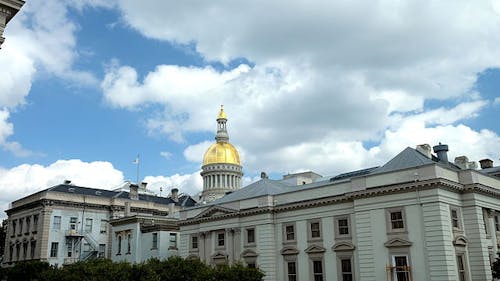U. expert reacts to proposed overhaul of New Jersey public records law

On March 14, New Jersey lawmakers temporarily halted their plans to limit the scope of the Open Public Records Act (OPRA), which compels local governments to release public records upon request, according to the Associated Press.
After a committee session advancing the bill, the state legislature pulled it from the Appropriations Committee in an effort to retool certain aspects, according to Politico.
Marc Pfeiffer, a senior policy fellow and associate director of the Bloustein Local Government Research Center at the Edward J. Bloustein School of Planning and Public Policy, said OPRA is utilized by journalists, activists and individuals seeking information about happenings inside the government.
"(OPRA) is used a lot by reporters … to ask questions about government stories and government issues," he said. "You (also) have public interest groups who are doing investigations into various issues, (which) could be civil rights issues, could be environmental issues ... and you have citizens who are interested in what's going on in their town."
Pfeiffer also said that other less traditional uses of the law include corporations such as credit agencies using OPRA for marketing purposes.
On March 16, in light of the controversy surrounding the bill, NJ Advance Media published an article sharing with readers how they have utilized the OPRA law in recent years, including an investigation of the Rutgers Athletics Department's debt.
Pfeiffer said allegations of political motivation were not the reason behind the introduction of this law and that there is a genuine need to reform OPRA.
The proposed law would make certain aspects of OPRA more difficult for the public, including requesting emails and prohibiting the release of draft documents by local governments, he said.
"You can't really run a government if every draft document that you have of exploring ideas is subject to public disclosure, because it doesn't represent a final government action," he said. "You really can't do business in a full transparent mode."
Pfeiffer also said the proposed changes to OPRA would require requests to be more specific and targeted and make email logs and calendars unavailable to the public through OPRA.
He said issues with the current OPRA system include the burdens that exist for small towns that have to pay staff to complete these requests and just the general workload a request can place on staffers.
Pfeiffer also said that some email requests are used for spam, an unforeseen consequence of the original OPRA law.
"Personal privacy is a real interesting challenge these days because the law was passed over 20 years ago," he said. "Privacy has changed, and notions that people have of what is personally private … is really different today."



